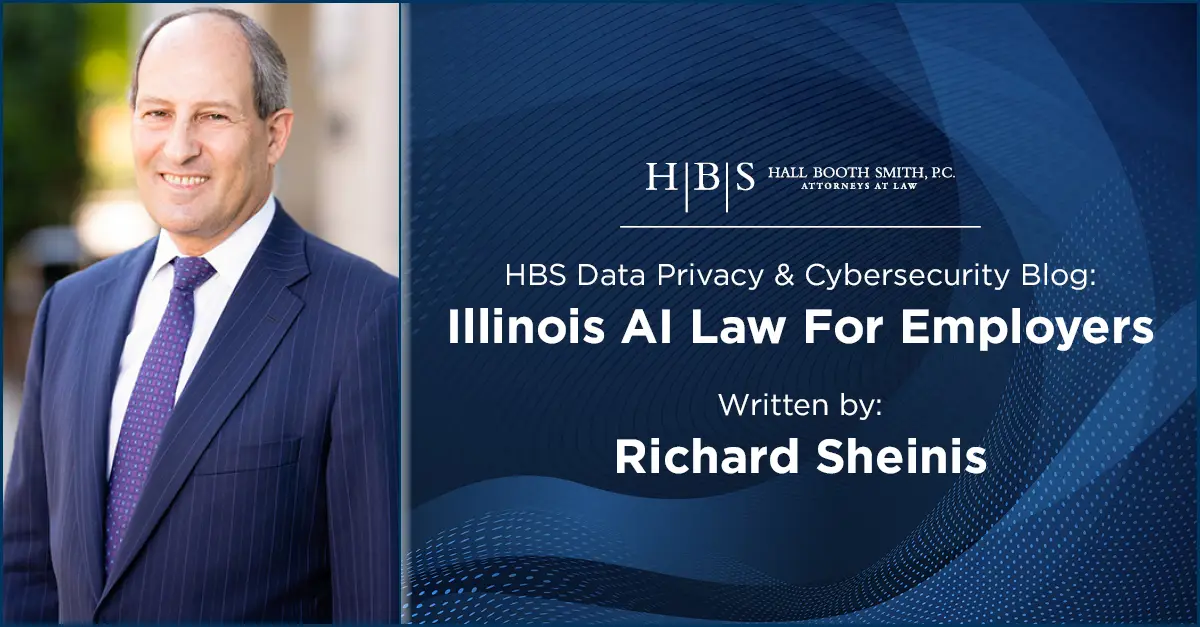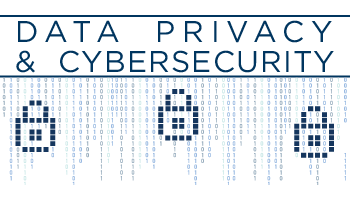
Illinois AI Law For Employers
Introduction
Illinois became the second state, after Colorado, to pass a law to regulate the use of AI by employers. Companies will have time to get ready as the law does not become effective until January 1, 2026.
What are the Details?
HB 3773, which amends the Illinois Human Rights Act, makes it unlawful for employers to use AI that discriminates on the basis of a protected class. Employers are also prohibited from using zip codes as a proxy for protected classes. Employers have an affirmative duty to notify employees of their use of AI. The legislation applies to employers that have even just one (1) employee during 20 or more calendar weeks within a calendar year.
AI is defined broadly in HB 3773 as a “machine-based system that, for explicit or implicit objectives, infers, from the input it receives, how to generate outputs such as predictions, content, recommendations, or decisions that can influence physical or virtual environments.” This definition includes generative AI, e.g. ChatGPT.
Providing notice to employees means informing them if AI is used for “recruitment, hiring, promotion, renewal of employment, selection for training or apprenticeship, discharge, discipline, tenure, or the terms, privileges, or conditions of employment.” The specifics regarding the notice requirement are to come from the Illinois Department of Human Rights, which is directed to adopt rules on the “circumstances and conditions that require notice, the time period for providing notice, and the means for providing notice.”
Missing from the legislation is any guidance as to how an employer should or can determine if an AI program is causing discriminatory outcomes. Employers do not develop the AI software, they do not select the data on which the AI program’s algorithms are based, and they do not create the algorithms themselves. Most employers do not have the expertise to assess these issues and will simply rely on the representations of the AI vendor to determine if the AI program suits their operational needs. It would be easy for an employer to fall into a trap of purchasing an AI program to only later find out the software was coded in such a way, or relied on data sets, that produce discriminatory outcomes.
HB 3773 falls far short of addressing the use of AI in a responsible manner. Instead, it sets a trap for employers and stifles technological advancement.
Disclaimer
This material is provided for informational purposes only. It is not intended to constitute legal advice nor does it create a client-lawyer relationship between Hall Booth Smith, P.C. and any recipient. Recipients should consult with counsel before taking any actions based on the information contained within this material. This material may be considered attorney advertising in some jurisdictions. Prior results do not guarantee a similar outcome.
Blog Overview
About the Author
Richard Sheinis
Partner | Charlotte Office
T: 980.859.0381
E: rsheinis@hallboothsmith.com
Richard Sheinis assists businesses in the areas of data privacy and cyber security, employment, and technology. He works with a wide variety of companies from small technology businesses to publicly traded companies with a global footprint.




Leave a comment
You must be logged in to post a comment.